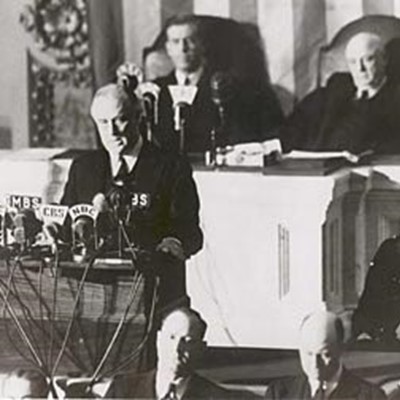
Grayson Allen. Photo courtesy of Duke Athletics
Maybe you find it hard to believe that Duke basketball's Grayson Allen is a fearful guy. After all, his tripping action has earned him notoriety and a compilation video. Yesterday's USA Today headline touted his theatrics: Grayson Allen broke out an Oscar-worthy performance on this egregious flop.
But Allen confesses to being a nervous public speaker in a recent essay for The Player's Tribune. As we read about his struggles, it brought to mind a few tips we can share for how to lessen fears when you walk to the front of the room.
Those tips are not that different from the very things lift Allen's confidence on the basketball court:
1. Change your mindset.
Allen writes that he became a strong player during his freshman year after a conversation with his coach: "I stopped thinking, 'I’m not getting in the game because I’m not good enough,' and changed my mindset to, 'We have a really talented team, and I’m on it for a reason.'"
Likewise, you can change how you talk to yourself about your presentation as you walk to the front of the room. Instead of telling yourself you dislike speaking or that you are nervous or that you want to just get it over with, tell yourself a different story:
- I have something to say that can help people, and I'm eager to do that.
- This may be hard for me, but I have useful information to share and that's the point.
- This isn't about me. It's about my message. My message is important.
2. Make some friends in the crowd.
Allen describes how a senior on the Duke basketball team forced him to make friends--and how making connections one-on-one helped him communicate more comfortably to a larger audience.
You can do the same thing when you walk into a room to speak. Introduce yourself to a few people. Say hello to some of the people you know. We find that personal contact before you address a group does two things:
- It gives you some friendly faces to help you get started. You can make eye contact with those people first as you work through the getting-this-presentation-started nerves.
- It makes those people feel connected to you, too. People you've talked to are more likely to engage with your message--and less likely to roll their eyes or check their phones--because they've had that one-on-one moment.
3. Stand in front of the room BEFORE anyone arrives.
Allen talks about how he relishes the peace of Duke University's Cameron Indoor Stadium when no one is there, how it's a place he goes to reflect.
While some college basketball fans might wonder what Grayson Allen is reflecting on, we see another tip for conquering nerves: Take a quiet moment to experience the place you'll be speaking BEFORE the crowd shows up.
Any small steps you can take to feel more familiar with your surroundings will help you feel more confident when you're in front of your audience. Simple things you do before people arrive can make a difference:
- Stand in the spot where you'll be speaking. Stand there for a while. Get comfortable in the space.
- Look out at the empty room. Notice where people will be speaking. Notice if there's anything that could be a distraction.
- If you're using PowerPoint, project and click through your slide deck. Notice where the projector is and get comfortable with the set up.
The ideal plan is to rehearse where you'll be speaking, but we don't always have the luxury of time or access to do that. These simple moves, though, can go a long way to making you feel more secure.
Last of all, it can help to remember that most people have nerves. You're not the only one. Here's what Allen wrote after his first not-so-great outing in his public speaking class:
When I got back to my seat, I remember thinking to myself, Dude, you just won a national championship with millions of people watching a few months ago. Why are you so nervous doing this?
And like most people who work at being better speakers, Allen sees the value in muddling through:
I don’t think it’s a coincidence that, looking back, that public speaking class has been the single most useful course I’ve ever taken at Duke.
You can find Grayson Allen's full article, including his play-by-play account of his impromptu speaking struggles, here.






